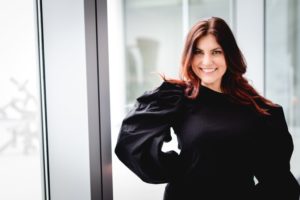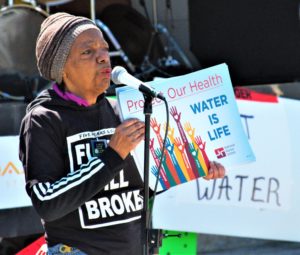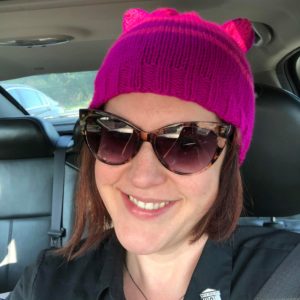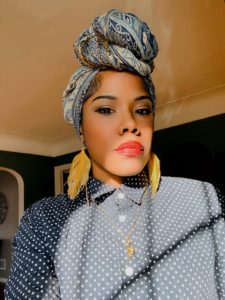By Jan Worth-Nelson
I set out to try to find out how some area women view the possibility that Roe v. Wade might be overturned by the U.S. Supreme Court. The 1973 decision gave women the right to decide whether they wanted to continue a pregnancy; at long last, first trimester abortions were made legal.
Some forget that that decision struck down a Texas ban on abortion, establishing that it was unconstitutional. The majority opinion was based on the Fourteenth Amendment of the U.S. Constitution, marked by its “right to privacy” clause.
Now it appears, thanks to a leak reported by two Politico reporters, that that landmark decision, approved by a 7-2 vote of the justices, is about to be overturned — with a near-ban on abortion in Texas again part of the story. It’s hard to imagine now, but in 1973 five of the justices voting to legalize abortion were Republican-appointed; only two were Democrat-appointed..
As I started to gather reactions from area women to the threat of the overturning of reproductive rights, I realized I had another job to do.
My story
There are times when one’s journalism is overtaken by one’s personal life, in which one’s experience and witness supersede the usual, more comfortable neutrality of the bystander/observer. This is one of them.
In 1970, I returned from a summer journalism internship in Iowa to my senior year in college in Ohio. It had been a remarkable, wonderful experience: I’d gone to the little Mississippi river town on my own, sculpting my own adventure, and I’d written dozens of stories for the plucky little daily newspaper and even developed my own black and white photos in an ancient darkroom. I felt empowered and interesting to myself, eager to proceed with a life in journalism.
And also, I’d exercised another set of choices. The weekend before I left for school — celebrating, maybe, a bit intoxicated by the romance of my exhilarating summer, I got pregnant. I didn’t know it at the time, but it’s not surprising. I’d been gallivanting with a tall, handsome guy; he’d parked his sports car in a humid, overgrown bank along the Mississippi River and that’s where we ended up, acting like our bodies were immune to nature as the river surged by. The audacity of youth. What did we think?
Obviously, this was before Roe. In 1970, abortion was illegal in Ohio — as it is likely to be again soon.
Somehow, I found my way to a women’s group run by a warm-hearted, well-connected older woman, a trained counselor, as I recall — I remember her still, and if you’re out there, Janeen Eipper, thank you.
She helped arrange my trip to a clinic in New York City, where abortion was legal. The “boy,” I will choose to call him, involved was a gentleman; we agreed ending the pregnancy was the right thing to do. He (or his father, maybe) sent enough money from Iowa to cover both my flight and Janeen’s, and paid for the procedure itself. I acknowledge now how good that was — he neither denied his role nor questioned or blamed me, and quickly accepted equal responsibility. In that, I understand I was very fortunate. Even now, 52 years later, I am thankful.
Janeen accompanied me to the brownstone, as I recall it, a welcoming, serious, loving place. I remember a big dog flopped on the waiting room and women — many middle aged, like solicitous aunts — wore braids and long peasant skirts.
The moment I sat alone, vulnerable in a flimsy gown, perched on a cold metal table waiting my turn, was the one bad time. What seemed like a worldly adventure got real. Something was going to happen to my body. I don’t remember the doctor, except that at the end, which did hurt a little, he said, “You’re not pregnant anymore.” After a few hours of recovery in the waiting room, I took Janeen out for a steak dinner and then we headed home. I was back on campus that night.
I wrote up a “first-person account” of the experience for my feature writing class. I said I had interviewed that young woman and I relayed the event as if it wasn’t me. I doubt if I fooled anybody, but I got an A — my story was built with lots of authentic detail.
Perhaps surprisingly, I felt empowered by the whole thing. It never occurred to me that anybody else could tell me what to do. I had been irresponsible — dumb — with my body, but it woke me up: finally I got myself on birth control and the rest is my history: I plunged into my journalism career with gusto — and my life, which I consider to have been pretty independent and full, proceeded. I was privileged — a concept I had not yet come to understand. I was given a chance to have interesting experiences and to grow from them, to do good work, and that was not the business of any government or priest.
I have held this story very close to my chest, except to close friends and my husbands. This is just one story, my story. I acknowledge it operates only in the power of its individual details.
Why tell it now? What was I afraid of? I ask myself, why NOT tell it now — this is the moment to speak. This is the moment for women to claim what it means to live our private lives, to speak our truths, to insist, as we say these days, on our bodily autonomy.
I am unique. But I am also one of millions of women who have to make decisions about their reproductive lives every day, and that breathtaking truth should be acknowledged as the reality of our lives.
Here are summaries of my conversations with five other women, ranging in age from 27 to 73, three white, two African-American.
Celeste Lord, 27, says the potential that Roe v. Wade would be struck down “is just heinous.”
Lord’s sister had a abortion when she was 17 and gave Lord permission to talk about it.

Celeste Lord (Photo by Leni Kei)
“I’ve been on both sides,” Lord said. “I grew up truly believing I was pro-life. I’m religious, I’m a Christian, and I think it’s okay to give ourselves permission to be sad about the end of a possibility or the thought of the possibility of the loss of life.
“It was sad to hear about my sister’s [abortion] — it was more me being sad because it was a very hard decision for her.
“But I say ‘heinous’ because this is not just a female or feminist issue. This is human rights issue. When we give the select few the authority over some of our bodies, we give them authority over all our bodies. It’s not just they don’t agree with abortion — we’re not asking them to agree…it’s okay to mourn these things, but we have had these laws in place.
“Truly as a young woman you live in fear if there’s a lack of these laws. Say if someone were to brutalize or assault a woman, maybe a person will be charged. But does that woman have to bear the trauma in the form of bearing a child from that assault?
“I would never say hey, I’m happy about a abortion, but if a horrifying heinous situation happens, that’s why we have these laws in place.”
Lord, a parishioner of St. Paul’s Episcopal Church and a program coordinator at the Crim Fitness Foundation, stresses her comments are her personal views. And the new need for exercising her voice is wearying.
“I was so vocal back in 2016 [when Trump was elected] .I feel that there’s starting to be this lack of validity for the female voice when it comes to our Supreme Court. I don’t know what to do. I feel like maybe we need white male Christian voices [who support reproductive rights] to speak up — maybe then the Supreme Court will listen.
“I’m a tired woman,” Lord said. “It doesn’t quit. I’ve been fighting for what I believe to be true and right, I’m a spiritual woman, not fighting just for the left side. But we’re seeing in this world that there’s power shifting, whether it’s Ukraine or Roe.
“I’m just asking if anyone else out there is feeling powerless…what if this threatens birth control, family planning? We can’t surrender to it, but it’s okay to be aware. We are going through some major change.”
She and her partner Moses Timlin recently bought a house in the College Cultural neighborhood, thinking they might sometime expand their family. But “not right now,” she said. She’s in graduate school at the University of Michigan – Flint, working towards a masters in leadership and organizational dynamics.
Claire McClinton, 73
For Claire McClinton of Flint, a GM retiree, UAW member, mother and and grandmother of three, one of the biggest issues behind the threatened Supreme Court action is its connection to voting rights.

Local activist Claire McClinton speaking at a 2021 Flint Water Crisis Commemoration. (Photo by Tom Travis)
“I guess I feel like most everybody else who’s aware of the challenges that women face in these times — it’s really devastating,” she said.
“It has context in the ongoing drive to dismantle democratic rights. Our democracy is so fragile right now and on the line and this is a horrible manifestation of losing our civil liberties and women’s rights and all the rest of it.”
McClinton sides with the plan to try to codify reproductive rights through federal legislation.
“We should not have had to depend on Roe v. Wade to hang on to the right to choice. It should be embedded in the legislation, so it’s time for the Congress and the Democratic Party who claim to be in support of women, to do the right thing.
McClinton and her daughter went to the Million Women’s march in 2017. “We wore our pussy hats,” she said, “We might have to pull those back out.
“We are so beat down…we don’t see leaders inspiring participation in our civic causes,” McClinton said.
“I don’t have an answer for it, but we are so traumatized, and we’ve been so lied to and neglected that people are just apathetic toward believing that voting will make a difference in our lives.”
She has a message for Biden and other D.C. Democrats. He and the Democrats “gotta get in a fighting mode,” she said. “They got to deliver.”
“You allowed that voting rights bill to go down ,” she said of Biden. “If you can’t do what’s needed to be done on this issue of the right to choose and to help women have their own destiny, then don’t be surprised if people don’t vote.
“It’s not just a little tweak,” she said. “This is fundamental to our being as a democracy. If you and I can’t depend on you to do that…We gave them the largest voter turnout in history and yet you can’t protect our right to vote, and our right to choose?
“We just gotta double down, ” she said. And while noting that citizens should continue their own actions, protesting, writing letters, and so on, “We cannot be afraid of calling [the leaders] out.”
Noting that one of her grandchildren is a young woman, she concluded, “We do not have the right to pass this mess down to the next generation.”
Samantha Siebert, 44, Grand Blanc
Flint native Siebert, a married artist and hospitality worker, said the threatened reversal of Roe v. Wade makes her feel like “a second class citizen.”
“It makes me very angry,” Siebert said.

Samantha Seibert (selfie)
“I feel like everything to do with health care for women has been made so difficult and so frustrating and so arcane and so marginalized; every choice that I’ve had to make in the last ten years has been so incredibly difficult.
“If it were really about babies and life…I don’t want to get into the argument about protecting life, because that is somebody’s closely held religious beliefs that I’m never going to change their mind about, and I have no right to change their mind.
“I want it to be about individual rights which I find very ironic because it’s usually the far right [concerned about that]
“For the last two years, who has appropriated my body, my choice more than the anti-vaxxers? I agree: it is their choice…but with choices come responsibility and repercussions. The same is true I believe for abortion.
“I get very frustrated with people who think that abortion is birth control. I know no woman who uses abortion as her first line of defense. Wouldn’t it be better if condoms and the pill and IUDs and all these other choices that we have were easier to access through whatever form of health care people have to cover them?
“When I was a broke college student and recent graduate and didn’t have health insurance, I was on the Genesee Health Care Plan,” she recalled. “It was easier to get Viagra than birth control. Medicaid will cover that, but not birth control. Who are these man having sex with? Why is this solely a female problem? It is not. It is not.
“You are not pro-life if you are anti-self-determination,” Siebert, who has no children, asserted, noting that the power to control your own body also means “being able to decide, yes, I can afford to support these children, yes, I have the time to invest in raising them.”
“What a powerful dynamic it is when you have the control over that,” she said.
“It’s wonderful that people are able to create families at the time that works for them,” she added, “but that’s not the only reason we need abortion.”
She groaned while noting ironies of the current reproductive rights debate in light of what the country has gone through with COVID. “If the government can’t make people get vaccinated, why does it get to have control of this?” she said.
“It is a slightly terrifying trend that we’re seeing dissolution of the separation of church and state,” Siebert stated. “I want everyone to have complete freedom to believe what they believe, but I want that for everyone in the community.”
She attended a protest the day the leak was revealed. She said she finds the need for response “overwhelming.”
“I want people to show up to vote,” she said. “People are incensed, and they are upset and they get overwhelmed and they don’t know how to reply. They’ve just got to show up and vote.”
“There was a camaraderie, a community,” she said of the protest.
“There was also sadness and anger and frustration. It was a shared and connected feeling because we were all upset and scared. It’s terrifying to me.”
Allie Herkenroder, 27, Flint
As a graduate of a small Christian college, Herkenroder, Seventh Ward Flint City Council person and interim president of the council, describes her evolution away from the anti-choice messages of her youth and her concern, like Siebert’s, about what seems to he a gradual dissolution of the separation between church and state.

Flint City Councilperson Allie Herkenroder (Ward 7) participated in the Defend Roe v Wade march. In her speech, Herkenroder said, “I am PISSED OFF. I am pissed off that I have to be out here fighting for our fundamental rights AGAIN. I am 27, an elected official and we all need to do our part o keep abortion safe and legal, that means running for office yourself, supporting candidates who think like you…that means looking across the nation looking for candidates in the red states who need our help to keep women safe: in Texas, Georgia. Do more than just protest. Nothing matters unless we go to the polls and vote. We have to vote because what right is next? We have a fundamental duty to go out and vote.(Photo by Jan Worth-Nelson)
Herkenroder stresses her views are her own.
“We had chapel two times a week, once a semester somebody would come in and say, “this is what the left is doing to the babies — they would show a fully-formed 40-week fetus and they’d say, this is what they are aborting.” I would think, I don’t really think that is what they’re doing.
“I was always flabbergasted about how the evangelical right were so focused on abortion instead of what happens to the babies after they’re born,” Herkenroder said.
“I don’t consider myself a religious person at this point, .but within the Christian influences, the Bible tells us more than anything to take care of the poor, and yet we are consistently met with policies that are iso contradictory and don’t take care of the poor. I get so frustrated about it, I don’t understand how people can’t see the irony. I just never understand.”
“No one who supports the overturning of Roe v. Wade is pro-life,” she contends. “They are pro-birth.”
“We can’t keep living in a world where people think it’s okay to tell women what to do with their bodies, especially when it’s something that they themselves have never had to experience,” Herkenroder said. “The fact that people don’t see how this is limiting the equal rights of women, and the fact that people are still trying to make it about something else” is exasperating, she said.
Banning abortion would likely have a detrimental effect on the country’s social system, Herkenroder predicted. “If we are going to say that no abortion is going to be legal, we need to put into effect preventative measures for both men and women. There should be universal birth control. We can’t put in this law and then say, sorry guys you’re on your own. If you’re going to be anti-abortion — it’s not pro-life, you’re pro-birth.
“I don’t know any single person who wants to have an abortion. Nobody wants it. I don’t know anybody who’s pro-abortion. What we want is a choice.”
“I read the legal opinion, the draft, and I still am struck that Alito called Roe v. Wade, ‘egregiously wrong,’ drawing on some of the same words used for Plessy v. Ferguson [a notorious 1896 Supreme Court decision that upheld the constitutionality of “separate but equal,” clearing the way for widespread segregation based on race]
“The fact that they’re trying to use the same narrative to take away a basic human right based on a decision which limited rights based on skin tone and lineage — what kind of mental gymnastics do these guys have to go through?”
Natasha Thomas, 41, Flint
Thomas comes at issues of the moment both personally, as a mother of three kids, and in her professional capacity as Genesee County Coordinator and Michigan Youth Racial Equity Council facilitator for the Michigan Organization for Adolescent Sexual Health (MOASH).

Natasha Thomas (selfie)
MOASH is about reproductive justice for young people in particular, making sure schools and environments who educate and advise youth are providing accurate information and responding to youth needs, Thomas said.
“Both personally and professionally for all of the people I work with, abortion rights are huge,” she said. “On the hopeful side, I’m hoping this is just a leak and this won’t actually be what the court lands on, but we need to be ready.
She pointed to the existence of a 1931 Michigan law banning abortion. If Roe is struck down, that law can be revived. The law threatens people who get abortions and abortion providers with prison.
“This is really hypocritical at best. and deadly and violent at worst , that the same people who don’t want to provide services for families, for children, for women, the same people who would say you shouldn’t get food stamps or Medicaid because if you can’t afford to have children you shouldn’t have them — those are the same people who are trying to force you to have children if you can’t afford them.
“It’s not about pro-life,” she said, “because if you were pro-life, you would be about providing the services that families need. This is really about controlling women’s bodies, it’s about controlling the reproductive rights of women.
“It’s scary,” she continued, “We know that people will continue to have abortions because either their circumstances don’t allow them to have children or they simply don’t want to have children. People will get abortions. The only thing we’re taking away, the only thing we’re banning, is the option to do that safely. And if that happens it will be a tragedy, and we will lose many people.”
Thomas’s work with youth has added a personal and professional urgency to the current threats to civil rights.
“The youth that we’ve been talking to on our youth advisory councils, youth leaders, LGBT rights, they’re terrified, because not only are they looking at t6he possibility of being forced to have children — we live in a world that is becoming so unstabilized, economic instability, pandemic, inflation, now even a formula shortage, so it’s terrifying in and of itself and now you will not get to make decisions about your own body.
“If I can think of any time in my own life when I would reconsider having children, this would be it. All of our systems seem to be in crisis: health care, education, all of it — and that makes being forced to have children and how to raise healthy children and how to have a healthy body so difficult.
“I always assumed that that these rights would exist for me — I had taken that for granted. I never thought that this is where we’d be at.
“To me, reproductive justice is not just having the right to decide for yourself whether you want to have a child or what to do with your body, but it’s also, that if you do decide to have children that there are certain given rights that a family should have.
“That’s what we’re asking of our legislators, our leaders,” Thomas said, including economic stability, parental leave, accessible health care.
The implications of Roe v. Wade being overturned are potentially particularly dire for marginalized communities — Blacks, indigenous people, LGBTQ, the disabled, immigrants.
What Thomas called “layers of privilege” can help circumvent the obstacles, such as traveling long distances to obtain health care, with attendant costs and accessibility difficulties.
“As an able-bodied person I’m not always aware,” she said. “You might have privilege in one area but not in another. I’ve had to examine that and what that means. For any kind of marginalized communities the implications are going to be greater. ”
For those interested in activism, Thomas said she is available for professional consultation and support, as is MOASH in general, at www.moash.org
To sign and/or support the “Reproductive Rights for All” petition, to establish an amendment to codify abortion rights in the Michigan constitution and not allow the 1931 law banning abortion to go into effect, go to the Reproductive Freedom for All site at www.mireproductivefreedom.org.
To support or attend the Youth for Reproductive Freedom March scheduled for March 22 in Lansing follow the link.
Information on the 1931 Michigan law banning abortion available here.
EVM Consulting Editor Jan Worth-Nelson can be reached at janworth1118@gmail.com.


You must be logged in to post a comment.